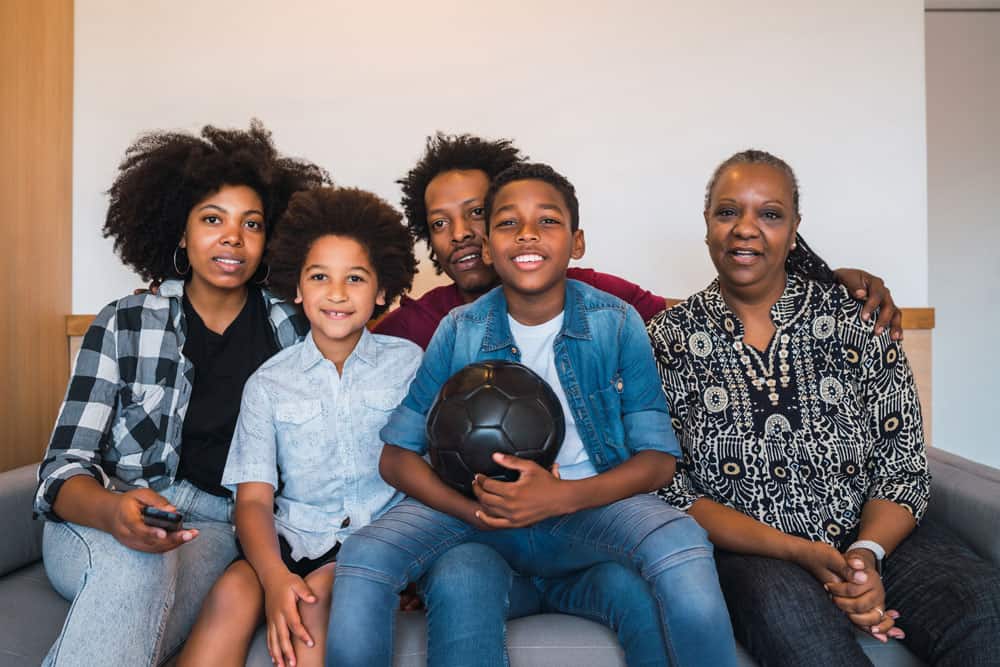There is a whole analogy I'd like to remind us of.
It's so interesting that a game that was invented in the UK, perhaps 200 years ago, imagine a group of guys getting together and for fun just kicking a ball around. That was always something which was a leisure activity. It was a bit of fun. It wasn't taken seriously. The whole point was to enjoy taking part. And what do we say to our children? It's not about winning, it's about taking part.

Fast forward to the late 20th Century, early 21st Century, and it's this game which is still the same game, but it's now been transformed into something where a lot of money is in the game and a lot of attachment is there, where people really will their team to win.

They really want their team to win. Sometimes supporting your football team has become a kind of religion. It's something that's so important to someone's wellbeing. It's who they worship in some ways.

When our team loses, there are so many people who feel upset, frustrated. They can feel down all week as a result of this. This is a great example of this idea of attachment, attachment to results. But rather than just enjoying watching our team playing and if they lose, well, never mind. It's fun. It's an experience. Instead, we've turned a normal activity, a bit of fun, into an attachment. We've stopped having fun sometimes with sports. Look, I'm not saying that's all of us. Just some of us have become like that. I notice that sometimes in myself when I'm willing my team to win.

It can be the same with recovery and the Condition - we want to get better.
And when we're doing well and we're feeling good, we think, "Yes, I'm really enjoying this Program because I'm seeing the results and things are moving forward."
But, of course, the Retraining is an art not a science and there will be days when things don't go our way and some of the symptoms come back for whatever reason. We have a bit of dip, perhaps we've overdone it.

In that moment, if we have that attachment to the results, the result being health and happiness, if we have an attachment to that then we cause ourselves that pain and suffering where we think, "Oh, I'm so frustrated," then the symptoms back, "I wish they would go away." In that moment, we want to walk that middle path of acceptance of this dip, recognizing it's part of the journey towards recovery and it's okay, and we'll continue with all the tools and techniques.

We just need to do a bit more retraining to strengthen our minds and we'll be back on that road to recovery.

Is this something that we can recognize in ourselves?
If we're attached to this result, the more importance we place on it, the more attached we are then the more anxiety and suffering we cause ourselves. Which then makes it less likely that we're going to get that result because we attract what we fear. So if we fear that we're not going to get better then that constant fear then stimulates our nervous system and makes it less likely that we're going to get better. Whereas when we accept our current situation and have a sense of belief, a sense of faith in our recovery. but not be attached to results.

So we set that vision and goal, we move towards it with confidence, and we accept whatever comes up.

For more information, please see my video, What The World Cup Taught Us About Non-Attachment below:

Ashok
Ashok Gupta is the Director of the Gupta Program. He has dedicated his life to helping people get their life back from Chronic Illness, improving people’s well-being, and helping them achieve their potential. He has been teaching meditation around the world for over 15 years. He runs a global e-clinic specializing in treating ME, Chronic Fatigue Syndrome, Fibromyalgia & Multiple Chemical Sensitivities – guptaprogram.com
Ashok has spent many years researching the brain neurology of emotion and linking well-being tools with science. He has published medical papers on the basis of stress-related illnesses. He has appeared in many media as an expert on stress on the BBC, CNN, Guardian Newspaper, ITV, The Independent, and many others.
He wrote and presented the Meaning of Life Experiment which is a Free, Award-winning Meditation and Self-Development App www.themeaningoflife.tv
He also works with companies around the world, teaching courses in Leadership, Time Management, and Personal Development. www.ashokgupta.tv








